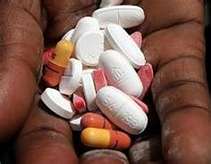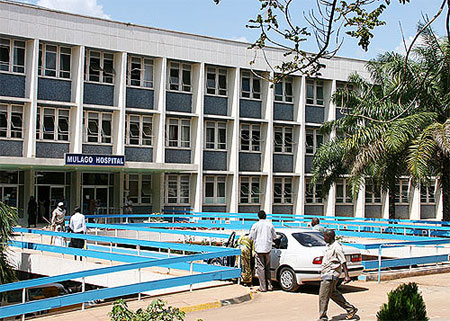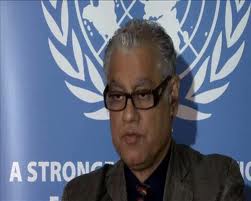WEZZIE NKHOMA-SOMBA
While Malawi hospitals are experiencing drug stock outs, some Malawians are smuggling drugs, including ARVs, to South Africa where they sell at informal markets, Malawi News has established.
The findings reveal that business people, mostly women who sell food stuffs like beans, rice, silver fish and groundnuts, sell the drugs secretly at Park Station and Munorurama depot in South Africa.
The drugs include Indocid, Bactrim which is currently not available in public hospitals in Malawi, with ARVs topping the list.
One of the business women confided in Malawi News that they buy the ARVs from private hospitals at K7,000 per bottle. These private hospitals are alleged to have been sourcing the drugs from government hospitals.
“Here in South Africa we sell a bottle of ARVs at R500 (about K18,000) while other drugs like bactrim are sold at R5 (about K180) per tablet. We do this secretly while doing our normal business of selling food stuffs,” she said.
According to another source who has been in this business for over four years, she hides the drugs at very strategic places where no one can notice even if searched.
“I hide the drugs under food warmers, or I pack them in the bags of rice which I also sell in South Africa. Sometimes I pack them in an envelope as if it’s a parcel for someone, or sometimes I would hide them in my top (wind breaker)” she explained.
Asked why she is still doing the illegal business which might put her in trouble one day, our source said: “Apart from monetary gains which I benefit from the business, I am doing this to save lives of my fellow Malawians who are afraid to have access to medical attention at South African hospitals for fear of being deported once discovered that they do not have permits.”
Pharmacy medicines and poisons board confirmed that some business people smuggle the drugs but said they are usually caught.
Acting registrar Aaron Sosola attributed the tendency to lenient sentences that are meted to the culprits once taken to court.
“Our inspectors have been arresting such people the only challenge is that the penalties are very lenient. We have even trained MRA officers on our borders and sometimes they tell us when they have caught the culplrits.
“Drugs like ARVs and bactrim are prescriptions only and for one to sell them they need to have a licence after we inspect their premises,” Sosola said.
In a separate interview, some Malawi Revenue Authority (MRA) officers who work at Mwanza border said that some business women hide the drugs in their under wears, while some hide them in their hand bags.
“These cases have always been there only that all the cases are reported to the regional offices through a situation report. So if you talk to the officials at the regional office, they will assist you with the information,” said one officer.
The officer further explained that on a weekly basis, at least five cases are recorded among the passengers who pass the border through buses adding that some drugs are smuggled through trucks.
Ministry of health spokesperson Henry Chimbali said he could not rule out the misuse of some drugs and other HIV supplies.
“We haven’t been informed about these practices but we can’t rule out some sporadic misuse of the drugs and other HIV supplies. For the other drugs, we know they are sometimes smuggled to other countries through many means,” he said.
Police spokesperson Davie Chingwalu said they have not made any arrests on the issue but said they will treat the issue as a tip to bring the culprits to book.
“We have had cases before whereby some people were found with other drugs or ARVs but they had with them prescription letters so there was no way we could have arrested them because they had proof that they were on medication,” Chingwalu said.
Source: http://www.bnltimes.com/index.php/malawi-news/headlines/national/11282-arvs-smuggled-to-south-africa



